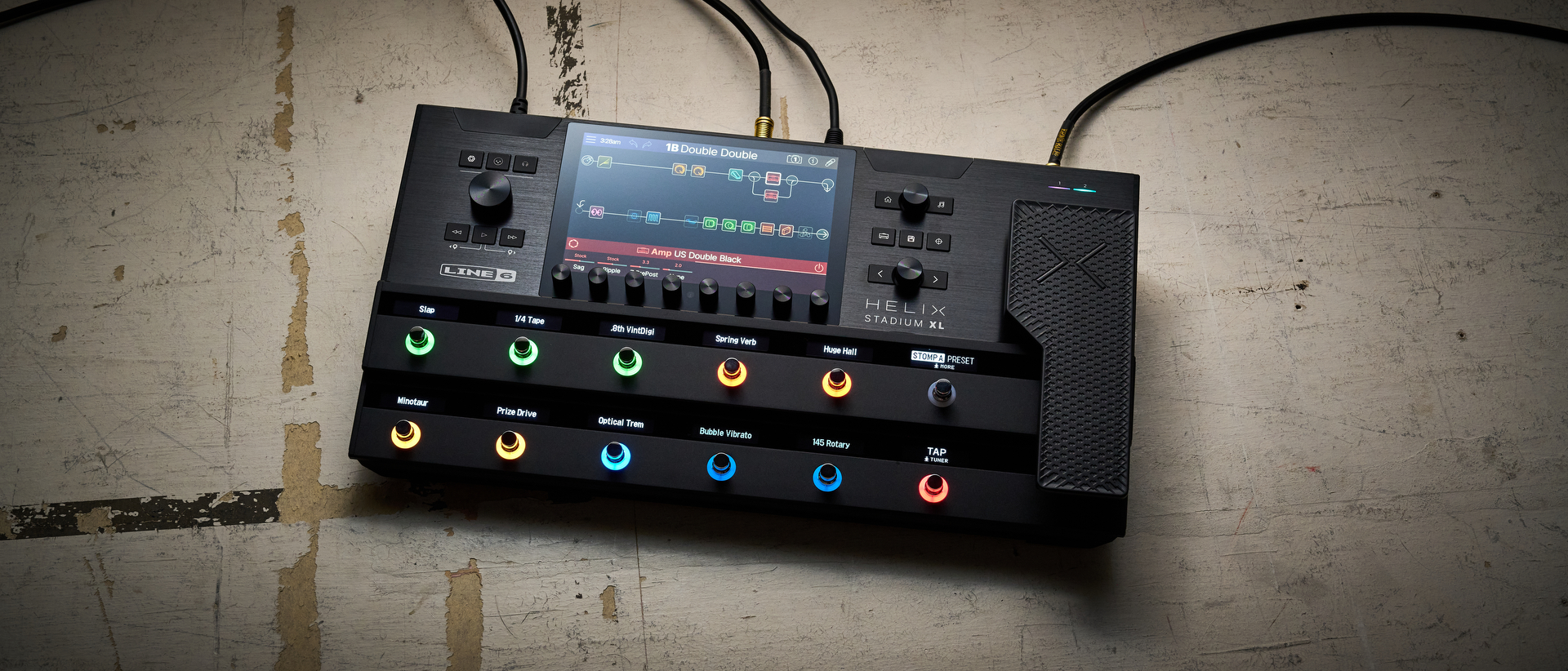“It’s an anti-establishment statement – I’m trying to make it okay for jazz guitarists to go out with their metal guitars”: Meet Cecil Alexander, the prog-loving jazz guitarist who’s challenging elitism by shredding bebop on a Jackson
The Michigan-born virtuoso shares his secrets for getting the perfect jazz tone on a metal guitar, the parallels between jazz and prog, and why jazz guitar isn’t as scary as it seems

“I think a lot of people are afraid to play jazz on anything other than an L-5,” says Cecil Alexander, the man who recently broke the internet shredding bebop on a Jackson Soloist.
Jazz only gripped the Michigan-born guitarist after he fell in love with Van Halen and Jimi Hendrix. As such, he hasn’t allowed himself to be regimented by tradition. “When I was doing my master’s, my main guitar was a Thinline Tele,” he explains. “My tutor told me, ‘Wes Montgomery would never play something like that; you need to get a real jazz guitar.’
“I played a Wes Montgomery tribute show in San Diego in November, and that was the first show I played with my Jackson Soloist. I didn’t think about it before taking it on the road, but it's kind of an anti-establishment statement.
“A lot of jazz guitarists would shudder at the thought of playing a Jackson, but you should play what feels comfortable and allows you to express yourself. I’m trying to make it okay for jazz guitarists to go out with their metal guitars.”
That’s not to say Alexander hasn’t played his far share of traditional jazz guitars. For a while, he thought they were obligatory – but after turning to solid bodies he’s never looked back.
“I had been chasing a very thick sound for a while, using really big boxes, heavy strings and only playing through Polytones and Princetons,” he says. “Then I saw this Soloist on Reverb and thought it was the coolest guitar.
“The previous owner had swapped out the original chrome Floyd Rose for an antique bronze one, which looks so sick, and he put all the stickers on it. It was an impulse buy; I got it and it felt amazing.”
All the latest guitar news, interviews, lessons, reviews, deals and more, direct to your inbox!
“I’ve played 24-fret guitars in a jazz setting before. I used a PRS Santana at Berklee and I always thought, with the neck pickup being a little offset, it made the tone too thin – but the Jackson has a perfect brightness to it.”
When he posted clips of that San Diego show on social media, he proved himself an enigma. Close your eyes and he’s a jazz aficionado with a fat, warm and woody tone, tearing it up on an L-5 with the spirit of Wes Montgomery smiling down upon him. Open them, and he’s playing a Jackson. What sorcery is this?
Jazz and prog are very similar in terms of the collaborative nature of the music and how that takes things in different directions
“It took less tweaking to get the tone than I initially thought it would,” Alexander reveals. “I was playing through a Fender Twin; I put the treble pretty high and used the tone knob to take a little bit of the unwanted like high-end out, but keeping the clarity from the high end of the amp. I tend to pick pretty close to the neck, and that warms things up quite a bit.”
Since graduating Berklee with a masters in jazz composition, Alexander has written and released two albums. Introducing – a solo album and love letter to bebop – came in 2022. It was followed by a guitar/vocal duo album with his wife Ari Alexander last year. With that project, named Visen, he “had to be the band” with his choice of full-chord voicings.
He’s also toured extensively with jazz trumpeter Chief Adjuah. Now he’s melding his love of jazz with math rock and heavy and progressive music for a new album, expected late 2024.
“In the last two years I’ve been jumping back into some of my earlier influences, like Animals as Leaders and Mahavishnu Orchestra,” he says of the stylistic shimmy. “I’ve also been going off the beaten track with Hendrix’s posthumous releases. The music is definitely in a heavy progressive rock vein, but it still has some of the nuance and subtlety of jazz.”
“I wasn’t looking for the material to just a prog metal thing,” he continues. “I wanted to incorporate jazz harmony without it feeling out of place. I was particularly inspired by Tosin Abasi for that.”
He’s enlisted two of his Chief Adjuah bandmates for the project: drummer Elé Howell and hotshot teenage bassist Ryoma Takenaga, who also plays in Ravi Coltrane’s band. “I actually thought about doing programmed drums at first, but when I showed a demo to Elé he begged me to let him play on it,” Alexander recalls with a short, cheeky laugh.

“One of the first instances of being amazed by drumming in a heavy setting was Mars Volta’s Bedlam In Goliath album. Thomas Pridgen comes from a gospel and jazz fusion background, so hearing him in that context chopping it up like nobody's business was a great inspiration.
“Elé has been amazing at channelling that and they’ve both brought their own personalities to the music. I love playing with them.”
The Pridgen parallel is an interesting one – especially since the guitarist sees a strong connection between jazz and prog. “They’re very similar in terms of the collaborative nature of the music and how that takes things in different directions,” he states. “One is with composition, the other improvisation, but they both use a lot of different pieces to work towards the aggregate structure of the song.”
The more you listen to specific players, you start to find out that they’re not just making it up all on the spot; they all have go-to licks
Despite their similarities, playing progressive metal meant relearning some core basics. “It definitely took some adjusting,” he admits, “especially in terms of my technique. The way I was phrasing was very much in bebop territory. I had to think about articulation, tapping, sweep picking and even palm muting, which I hadn’t explored in years.”
As well as convincing the world that jazz on a Jackson is kosher, Alexander is also keen to demystify the complexity of jazz guitar.
“For players that are coming from rock, blues and metal backgrounds, starting with the players that are closer to those styles makes it far more approachable,” he says. “Check out Chris Kane, Robben Ford and Grant Green. A lot of their vocabulary is similar to the minor pentatonic, just with a few unfamiliar bits added in.”
In the case of Green, he’s eager to point readers in the direction of the track It Ain’t Necessarily So. He explains: “There’s one moment where he plays these repeated figure through the blues scale and even keeps it going over a load of II-V changes and it sounds like Angus Young. With that song, it felt I was tiptoeing into bebop.
“I feel like we tend to overcomplicate jazz,” Alexander continues. “The more you listen to specific players, you start to find out that they’re not just making it up all on the spot; they all have go-to licks. John Coltrane and Miles Davies have things that they do in every solo. Everyone does.
“There’s this expectation that you have to have so much vocabulary and never repeat yourself – but the people that sound the most improvisatory are actually the people that have the most stuff already worked out.”
If it doesn’t need overcomplicating, does that make theory less imperative? “There’s such a thing as learning too much theory, where I feel like it might even get in the way of your playing,” he says.
“Getting together knowledge of major scale modes, arpeggios and being able to look at a set of chord changes and know what’s going on will help. But you don’t need to dive much deeper than that to have a solid jazz vocabulary.”
- Cecil Alexander’s prog metal album will be released in the fall. For more information in the meantime, head to CecilAlexander.com.
A freelance writer with a penchant for music that gets weird, Phil is a regular contributor to Prog, Guitar World, and Total Guitar magazines and is especially keen on shining a light on unknown artists. Outside of the journalism realm, you can find him writing angular riffs in progressive metal band, Prognosis, in which he slings an 8-string Strandberg Boden Original, churning that low string through a variety of tunings. He's also a published author and is currently penning his debut novel which chucks fantasy, mythology and humanity into a great big melting pot.





